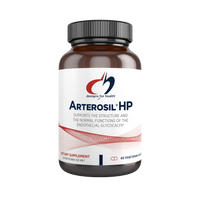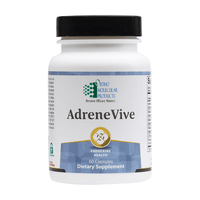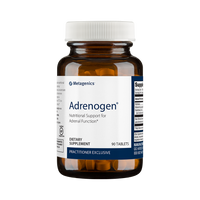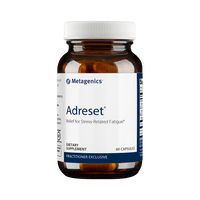According to the American Nutrition Association, 70 million people every day suffer from some type of digestive disorder. Whether it is heartburn, acid reflux, constipation, or any other digestive problem, these conditions can wreak serious havoc on our health. However, digestive health, in my opinion, is sadly overlooked in most health discussions. I feel it is vital to have a firm understanding of the digestive process and what constitutes good digestive health, since the danger of neglecting digestive health can rear its ugly head in the form of abdominal pain, nausea, vomiting, and even more serious, life-threatening conditions like colon cancer.
So much of your overall health in connected to what goes on in your gut. In the eye-opening 2013 book Clean Gut, by Dr. Alejandro Junger, a compelling case is made that most of the diseases being diagnosed in epidemic proportions (like cancer, insomnia, depression, asthma, diabetes, arthritis, heart disease and many others) can all be traced back to an injured/irritated gut and digestive system. So in this article, I'd like to give you an overview of what healthy digestion looks like, an explanation of some of the most common digestive disorders, and some options regarding how to get your system running smoother. As usual, there are natural options that get to the root of the problem (as opposed to the conventional pharmaceutical approach) but, before we get to those, let's take a look at what a healthy digestive process looks like.
A Digestible Overview
As we all know, digestion begins in the mouth. The food you put into it is chewed, which separates it into more manageable pieces, and then is compacted down by saliva, which begins the breakdown of nutrients. The food is swallowed in the throat, and then gravity and muscular waves (in a process called peristalsis) move the food through the esophagus and into the stomach. Once the food reaches the stomach, an endocrine hormone called gastrin, triggers certain cells in the stomach to secrete hydrochloric acid (HCl), which boosts acidity levels inside the stomach. This increased acidity is crucial for the digestive process for a few reasons. Most importantly, though, is that the acidity causes certain cells to dispense pepsinogen, which is subsequently changed by HCl into its active form of pepsin. Pepsin breaks down protein food particles into small fragments. This acidified food mix, known as chyme, passes through the pyloric sphincter into the small intestine.
Once the food enters the small intestine, the pancreas is triggered to unleash its stockpile of digestive enzymes. Digestive enzymes are a key part of the digestive process. Without them, our food would remain undigested inside the body and would ferment in the intestines and colon. This decaying food would lead to a buildup of harmful toxins that would then spread to other parts of the body. The result would be conditions like premature aging, fatigue, and the potential for a variety of degenerative diseases. This is why those with diabetes especially need to supplement with digestive enzymes, since diabetes damages the pancreas and results in fewer digestive enzymes being produced naturally. Each digestive enzyme usually has just one function that speeds up crucial chemical reactions within the body.
The digestive enzymes include:
* Proteases and peptidases (which break down proteins to peptides and amino acids) * Carbohydrases (which break down carbohydrates to sugars) * Amylases (which break down triglyceride to fatty acids).
Not only does your body produce enzymes that break down the nutrients, but intestinal bacteria also create enzymes that synthesize certain vitamins (Vitamin K, in particular) to be absorbed, as well as breaking down plant fiber in your diet. More than 400 bacterial species have been identified in the gut of a single person!
When Your Gut Is Not Happy, You're Not Happy
So now that I've explained the basics of the normal digestive process, let's cover some of the more common digestive disorders in the United States. Interestingly, most of these are due to carrying excess weight due to a sedentary lifestyle and poor diet, but can sometimes be due to just simple genetics. Many are not aware that light to moderate exercise can be important for healthy digesting because it helps stimulate the natural contraction of the muscles of your intestinal walls. A sedentary lifestyle can lead to stagnation, fewer digestive enzymes, and food waste moving sluggishly through the intestines.
According to the Mayo Clinic, four of the most common digestive disorders are constipation, gastro-esophageal reflux, lactose intolerance and irritable bowel syndrome.
Constipation is a digestive problem in which bowel movements become challenging and less frequent; it is quite common and very disruptive to the body. As the food you eat passes through the digestive tract, your body takes water and nutrients from the food. This process creates a stool, which is moved through your intestines with muscle contractions from your digestive tract. However, for constipation sufferers, the stools become too hard to pass comfortably due to insufficient water content. This results in a variety of symptoms, with the most common one being a painful feeling of being "blocked up."
One of the leading causes of constipation symptoms is having unbalanced flora (bacteria) in the intestines. Long-term research performed by the Centre for Digestive Diseases suggests that a majority of patients wtih constipation have an infection with bacteria that has entered the intestinal tract through the mouth. These malicious bacteria begin to coexist with your normal human bowel flora and produce molecules that create a "partial paralysis" to the bowel lining. This partial paralysis can become so severe that the bowel may not empty for days or weeks. Certain strains of probiotics (good bacteria), such as bifidobacterium and acidophilus, have been shown to help with this process by facilitating protection against opportunistic bacteria and helping to improve proper digestion, nutrient uptake, and metabolism. A 2010 study published in the Journal of Clinical Gastroenterology showed that acidophilus can also treat constipation by reducing abdominal distension (a sense of being bloated) and the feeling of incomplete waste elimination.
It is also worth noting that acidophilus can come in varying types and strengths and each have different therapeutic qualities. I highly recommend the strain Lactobacillus acidophilus (NCFM), as it is registered at North Carolina State University and has undergone tremendous research and clinical trials in the areas of Irritable Bowel Syndrome (IBS), health in the elderly, and pollen allergies.
Gastroesophageal reflux, often called heartburn, affects as many as 60 million Americans at least once a month with 15 million sufferers experiencing symptoms daily, according to the American College of Gastroenterology. Also called acid reflux, this condition occurs when the stomach acid that the body needs to break down food flows backward up into the esophagus. Many mistakenly believe that acid reflux is caused by excessive acid produced within your stomach. However, the two most common types of reflux are dysfunction of the sphincter muscle separating the esophagus from the stomach (a common condition called a hiatal hernia in which acid seeps back up into inappropriate areas) and Helicobacter pylori (H. Pylori), which is an infection that can cause a chronic inflammation within the stomach wall lining and in and around the esophageal sphincter muscle.
Most people describe the pain of reflux to be a burning sensation. Often, certain foods make the condition worse. If this sounds familiar, I would recommend to stop eating processed foods, avoid refined sugars, and stay clear of any triggers of your symptoms. The most common triggers are spicy and acidic foods, caffeine, alcohol, and nicotine products. Introducing probiotic supplements (which I'll discuss later on) to your wellness regimen can also help. If you experience heartburn more than twice a week, it may be associated with a more severe problem known as gastroesophageal reflux disease (or GERD).
Lactose intolerance is a digestive disorder in which a person is missing the digestive enzyme needed to properly digest the main sugar in milk. According to the National Institute of Child Health and Human Development (NICHD), 30 to 50 million Americans are lactose intolerant with African-Americans, Asians, and American Indians most likely to have the condition. Symptoms can include diarrhea, gas, a feeling of nausea, cramping, and bloating. Some people don't even realize that they have lactose intolerance and can't figure out why, after some meals, they have such a hard time digesting the food they take in. Want an easy way to find out if you are lactose intolerant? Some doctors tell their patients to buy a tall container of milk, drink it all, then wait and see how it makes them feel. If you feel miserable the rest of the day (bloating, diarrhea, etc.), you are probably lactose intolerant.
Studies have shown that supplementation with probiotics can also alleviate symptoms of lactose intolerance (along with consuming a small amount of yogurt) by modifying the metabolic activity of microbiotic flora in the colon. These bacteria can produce their own lactase enzyme, and consuming lactose from dairy products can promote the growth of these bacteria in the colon. This can lead to greater lactase content in the gut and improved lactose digestion. Remember, it is important to start slowly and gradually build up tolerance.
Another common digestive abnormality is irritable bowel syndrome (IBS). IBS affects the large intestine and usually results in belly pain, constipation or diarrhea, and cramping or bloating. In addition to IBS causing conflicting symptoms like constipation and diarrhea, it can also cause mucus to appear in the stools and a feeling that your bowels have not been fully emptied. The exact biological cause of IBS is still unknown, but health experts believe it is due to faulty communication between the brain and intestinal tract. Much like with lactose intolerance, some people with mild IBS do not even realize that they have it and just live with the uncomfortable symptoms. Typically, IBS is only diagnosed by recognizing a pattern of symptoms, since there are not many tests that can be performed by healthcare professionals to figure out if a person has it.
The Pharmaceutical Solution
The typical treatment here in the western world for most kinds of digestive disorders is to prescribe things like antacids, antibiotics, steroids, and proton pump inhibitors. In fact, while these solutions often do a good job of masking the symptoms, they do not necessarily solve the underlying problem, and can even come with their own health risks. For example, a 2008 study published in the Canadian Medical Association Journal found that seniors who use proton-pump inhibitors such as Nexium, Prevacid, and Prilosec for digestive issues are at greater risk for osteoporosis-related bone fractures.
A 2014 study by the Mayo Clinic found that that these increasingly common proton-pump inhibitors are not only bad for your bones, but also bad for the previously-discussed bacteria in your gut. The study found that proton-pump inhibitors reduce the diversity of your intestinal flora; killing good kinds of bacteria that your digestive system needs to function properly. As a result, long-term proton-pump inhibitor users are at increased risk for infections like clostridium difficile (a cause of infectious diarrhea) and pneumonia.
Also beware of prolonged use of antacids tablets, since they have some troubling side effects as well. Calcium carbonate, the active ingredient in most antacids tablets, can irritate the digestive tract and cause vomiting and nausea when taken in extremely high doses. According to studies from the Office of Dietary Supplements, taking too much calcium carbonate over a long period of time can increase your risk of renal insufficiency and vascular and soft tissue calcification such as kidney stones. These studies also link higher calcium intake with an increased risk of prostate cancer, although this effect is not fully understood and needs more research to be performed regarding it to be certain.
Now just to be clear, there are definitely times when medication is necessary for certain conditions. As with any medical issue, making a proper diagnosis is crucial to determining which approach will be the most effective for you. However, in many cases, I believe trying a natural approach should be the first line of intervention. These natural solutions may not always mask the symptoms as quickly as the pharmaceutical approach, but they are more likely to get to the root of the problem and can help the body heal and restore itself naturally. This gets the digestive system working the way it was intended to work.
For those of you who are looking to avoid the potential side effects from medication, and desire a natural approach to improving your digestive issues, here are some of my recommendations.
The Natural Way
As mentioned in the overview at the beginning of this article, HCl and pepsin are key components of the healthy digestion of food. Betaine HCl and pepsin promote the solubility of food particles and the healthy absorption and utilization of nutrients, including protein, calcium, vitamin B12, and iron. HCl, in particular, contributes to the naturally acidic environment of the stomach necessary for healthy microbial balance.
Often, indigestion is caused by too little stomach acid as opposed to too much. As we age, the body's ability to make HCl and stomach acid decreases, which can lead to a wide array of digestive troubles. Fortunately, there is a great product, Pure Encapsulations: Betaine HCl & Pepsin that provides these substances.
Probiotics are also worth considering. Earlier, I discussed how probiotics help with constipation, but a healthy balance of intestinal flora actually does wonders for your digestive system as a whole and can help battle a plethora of digestive disorders. Remember that the body needs a healthy balance and blend of bacteria, and while there are many types of harmful bacteria that the body wants to keep at bay, it actually needs certain kinds of bacteria for the digestive system to function properly. This good kind of bacteria consists of yeast, protozoa, bacteria, and fungi. One particularly beneficial strain often found in probiotic supplements is the aforementioned Lactobacillus acidophilus (NCFM).
According to the University of Maryland Medical Center, Lactobacillus acidophilus creates lactic acid and hydrogen peroxide in the intestine during the digestive process as it breaks down food. The body relies on lactic acid and hydrogen peroxide to keep the colon healthy and in an acidic state. Without this acidity, the colon would become overrun by harmful parasites and yeasts. Lactobacillus acidophilus, and other probiotics like it, also help digestion by normalizing the gut transit time (either slowing it down if you have diarrhea or speeding it up if you have constipation). And if you ever have to take antibiotics, which destroy not only the bad bacteria in the digestive tract but the good bacteria as well, Lactobacillus acidophilus is immensely helpful in repopulating a digestive environment. UltraFlora Balance by Metagenics provides 15 billion high-potency live organisms in each capsule. It features Lactobacillus acidophilus (NCFM strain), but also contains a number of other high-quality, beneficial probiotics, like Bifidobacterium lactis.
Other popular natural remedies include Fiber fusion powder, chlorella, and aloe vera. Pure Encapsulations has combined these into one product called G.I. Fortify
I hope you are able to use this knowledge to get your digestive system running smoothly and efficiency; your body will thank you for it! If you have any questions about the products or suggestions discussed here, or need help placing your order, our customer service team is standing by and ready to assist you in any way we can. You can reach us at (888) 460-3091 or email us at: customerservice@oakwaynaturals.com. Until next time, stay healthy!
Yours in health, Dr. Gregg Gittins
















 a
a